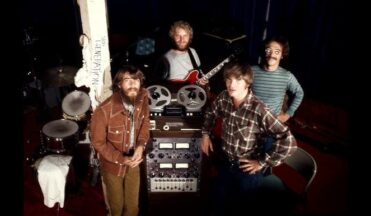Garage rock isn’t polished. It’s raw, loud, and urgent. It doesn’t ask for attention—it grabs it. Born in suburban basements and cheap studios, garage rock sounds like it’s barely holding itself together. And maybe that’s the point. It doesn’t care about perfection. It cares about feeling. That’s why, when the first chords crash through the speakers, something shifts. You’re not just hearing music. You’re somewhere else.
Escaping Reality with Every Riff
There’s something about garage rock that pulls you away from your routine. Maybe it’s the distortion. Maybe it’s the shouting vocals. Or maybe it’s the way the drums hit like a racing heartbeat. That feeling of escape is hard to describe—but you know it when you hear it. It’s like walking into a smoky room filled with sound and grit. Suddenly, the day’s problems feel distant. Even in other areas of life, people seek out these moments of escape. It’s the same reason many turn to quick thrills in places like online casinos. Just as a garage rock song can jolt your senses awake, casino rewards 1 dollar deposit offer that tiny push into a different world—for just a buck. Both experiences are quick, intense, and meant to take you somewhere far from the everyday.
What Makes Garage Rock Feel So Different?
Garage rock works because it’s not trying too hard. It isn’t polished like pop. It’s not as technically demanding as jazz. Instead, it uses a few simple ingredients in powerful ways.
Here’s what sets it apart:
- Distorted guitars. That fuzzy, crunchy tone is the backbone of garage rock. It creates a wall of sound that wraps around you.
- Shouting vocals. Singers often sound like they’re on the edge—of their voice, their mind, or the world itself.
- Fast, simple rhythms. Most songs are short and aggressive. No overthinking. Just emotion and speed.
- DIY energy. Many bands record at home or in cheap studios. That lo-fi quality adds to the rawness.
Together, these elements create something hypnotic. You don’t just hear garage rock—you get dragged into it.
Bands That Open the Door to That “Other Dimension”
Some groups mastered this chaotic magic. Listening to them is like flipping a switch and leaving the real world behind.
- The Sonics? Chaos in motion. “Have Love Will Travel” blasts like it might tear through your speakers.
- The 13th Floor Elevators drip with acid-drenched echo. They didn’t bend garage rock—they warped it.
- The Stooges? Iggy didn’t sing. He snarled. He broke himself open on stage.
- The White Stripes stripped everything down. Jack’s guitar cried, Meg’s drums thumped like a war drum.
Each band creates a doorway. You walk in as one person. You leave a little rattled, a little louder, and a little more alive.
Why It Feels Like Time Travel
Garage rock can make you feel like you’re in the past and future at once. The sound is old-school. But the energy is timeless. When you listen, you’re in that 1960s garage—but you’re also in your own head, reshaping what music means to you. That dual feeling can feel like a jump between worlds. A new reality forms around you. There’s no algorithm, no auto-tune. Just sweat, grit, and noise.
Not Just Music—A Full-Body Experience
Listening to garage rock is physical. The volume rattles your chest. The beat grabs your muscles. The vocals make you shout back. It’s not background music. It demands your attention. It pulls your mind away from scrolling, emails, or chores. That’s the “other dimension” it creates. You stop being passive. You start feeling again. For many, this is the magic of music. But garage rock does it without fancy production or expensive gear. Just a cheap guitar, a trashy drum kit, and someone with something to scream about.
Garage rock isn’t for everyone. But for those who feel it, it becomes a kind of portal. One riff, one shout, and suddenly, you’re not in your room anymore. You’re somewhere darker, louder, freer. And sometimes, that’s exactly where you need to be.


